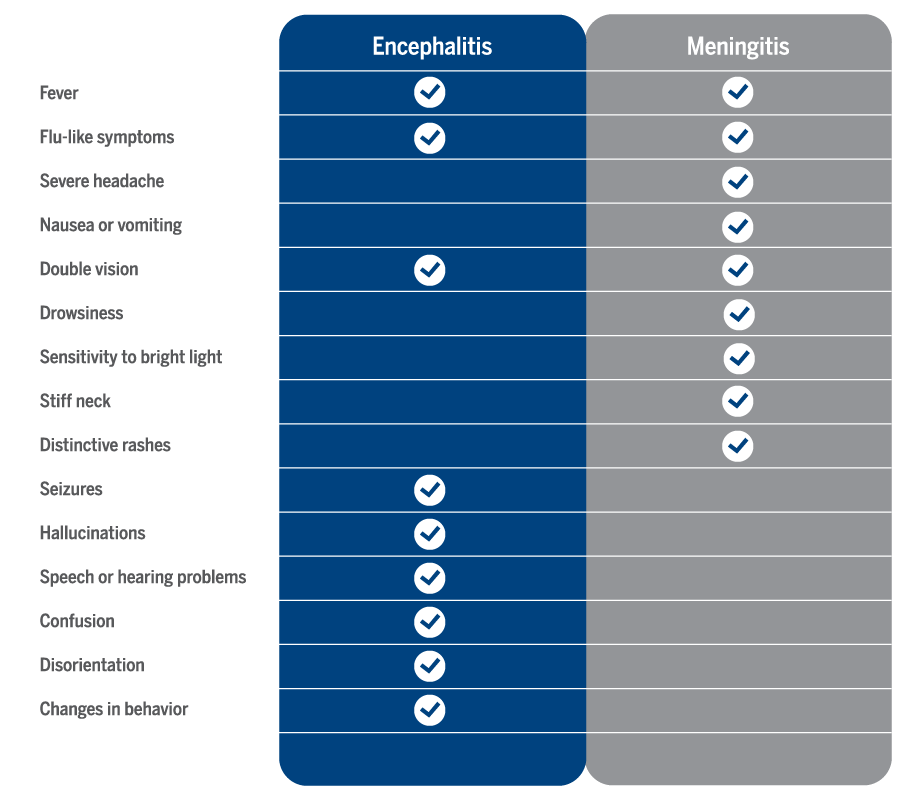Clinical Differences Between Encephalitis and Meningitis
Meningitis and encephalitis are serious conditions that require prompt medical attention to avert adverse outcomes. Bacterial meningitis can be deadly for otherwise healthy people or may cause stroke, hearing loss, or brain damage.1 Encephalitis is often mild, but severe illness can leave patients with long-term after-effects including acquired brain injury (ABI).2
Meningitis is an inflammation of the membranes, called meninges, that surround the brain and spinal cord. Encephalitis is inflammation of the brain itself. Both encephalitis and meningitis can be caused by infections or non-infectious causes. In order to appropriately treat encephalitis or meningitis, clinicians must determine if the cause is infectious or non-infectious—and if it’s infectious, whether it’s bacterial, viral, or fungal (yeast).
Because encephalitis and meningitis each affect different tissues, they can cause distinct symptoms. Below are some of the similarities and differences between encephalitis symptoms and meningitis symptoms.






